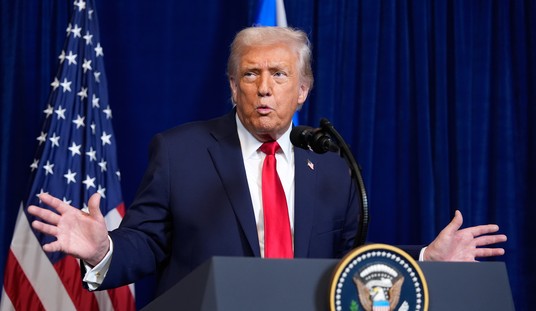Say, remember the great success of the first and second rounds of quantitative easing, the technical term for printing money? If all you recall is increased inflation and a continuation of the economic stagnation of Obamanomics, well, you’re ahead of the Federal Reserve. According to CNBC, the Fed will probably approve QE3, thanks in part to the high unemployment that the White House insists isn’t all that high:
Federal Reserve officials are seriously considering giving the US economy—and especially the housing market—an added jolt with more quantitative easing. …
Two of the new voting members this year on the Federal Open Market Committee, which sets interest-rate policy, have recently suggested they would support more assets purchases.
San Francisco Fed President John Williams said that sustained high levels of unemployment, as forecast by many Fed members, “does make an argument that we should have more stimulus.”
Another new voter, Cleveland Fed President Sandra Pianalto, said in a recent speech that economic models indicate the Fed “should be even more accommodative than it is today.”
If nothing else, this proves the Fed can calculate better than the Obama administration and most of the media. The jobless problem goes far beyond the 8.5% unemployment rate announced a week ago. Millions have fled the workforce, keeping the jobless rate artificially low. The U-6 figure that calculates for discouraged workers sits at 15.2%, almost the lowest of Obama’s presidency but still nearly twice as high as December 2006’s 7.9%.
The Fed, as it did with QE2 especially, probably sees little choice but to take some kind of action. Just as with QE2, though, another round of easing won’t help the underlying problems relating to either housing or employment. The issue isn’t tight money policy any more — we haven’t made money this easy in, well, forever. The problem in housing is employment; there just aren’t enough qualified buyers any longer. And the problem in employment is an administration that keeps pushing short-term, gimmicky tax breaks that make for great headlines but do nothing to allow for long-term planning for investors, while increasing the ambiguity of future investment costs with bad regulation like Dodd-Frank and ObamaCare, which turns over rulemaking to the whim of bureaucrats.
Expect QE3 to be an embarrassing flop, but it won’t be the only embarrassment for the Fed:
The leaders of the Federal Reserve went around the room saluting Alan Greenspan during his last day as chairman of the central bank. Then Timothy F. Geithner, the future Treasury secretary, made a prediction.
“I’d like the record to show that I think you’re pretty terrific, too,” Geithner, who was president of the Federal Reserve Bank of New York, told Greenspan amid laughter on Jan. 31, 2006. “And thinking in terms of probabilities, I think the risk that we decide in the future that you’re even better than we think is higher than the alternative.”
On Thursday, the Fed released transcripts of its meetings in 2006, offering a new window into what was on the minds of some of the nation’s top economic and financial thinkers just ahead of the financial crisis and subsequent great recession. The transcripts, which are customarily released after five years, show that Fed leaders, armed with the best economic data available, had little idea of what was looming less than two years off.
Trusted to look toward the future and make decisions to keep the economy strong, they spent some of their time patting their leader on the back and even found time to joke about what turned out to be early-warning signs in the markets. While Fed officials — including several who are in key positions today — were aware that the nation’s rapid increase in housing prices was coming to an end, they significantly underestimated how much damage the popping of the real estate bubble would cause in the rest of the economy.
Well, I’m sure they learned their lesson. Why, eventually, one of these rounds of quantitative easing has to work … right?








Join the conversation as a VIP Member